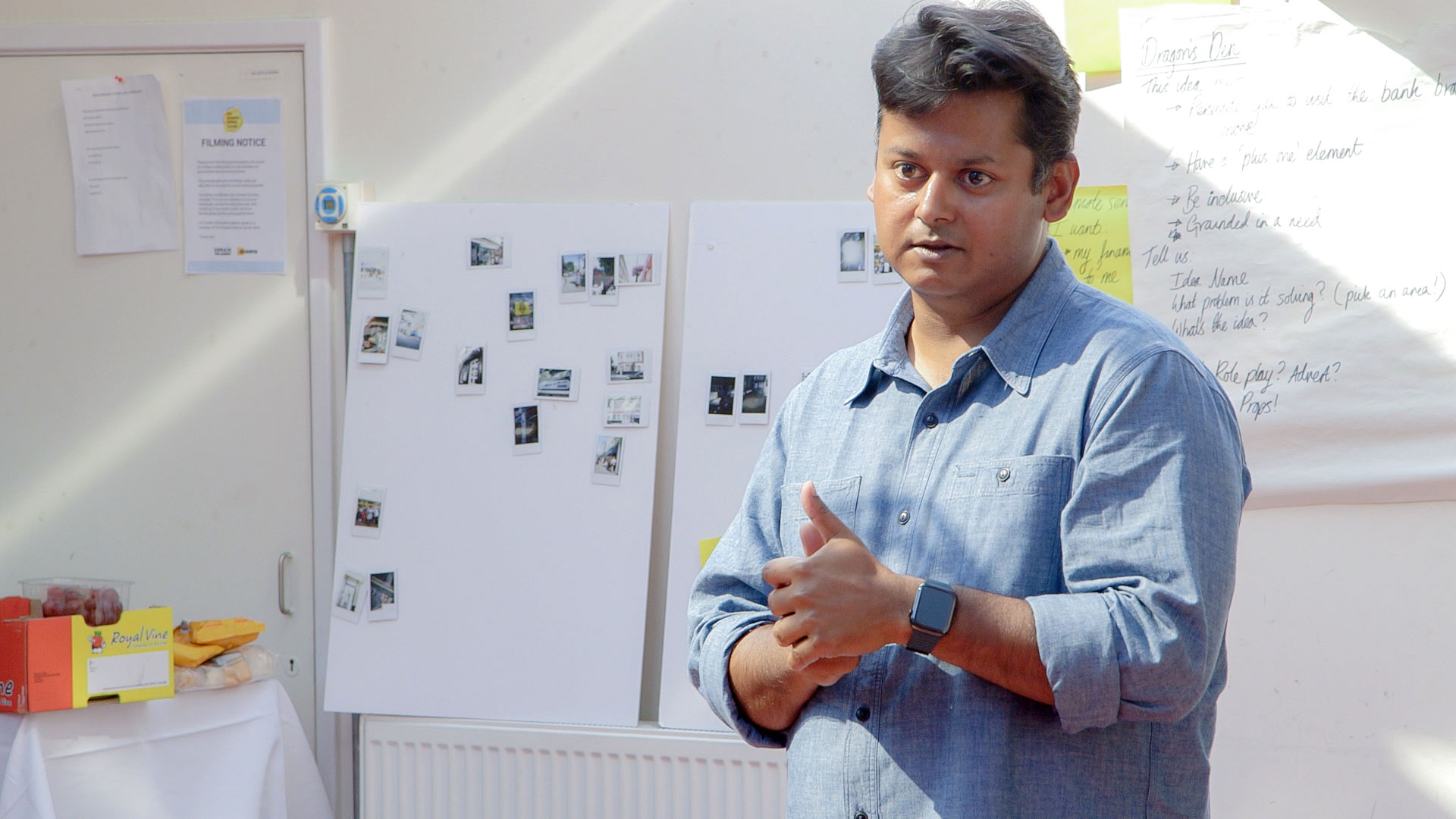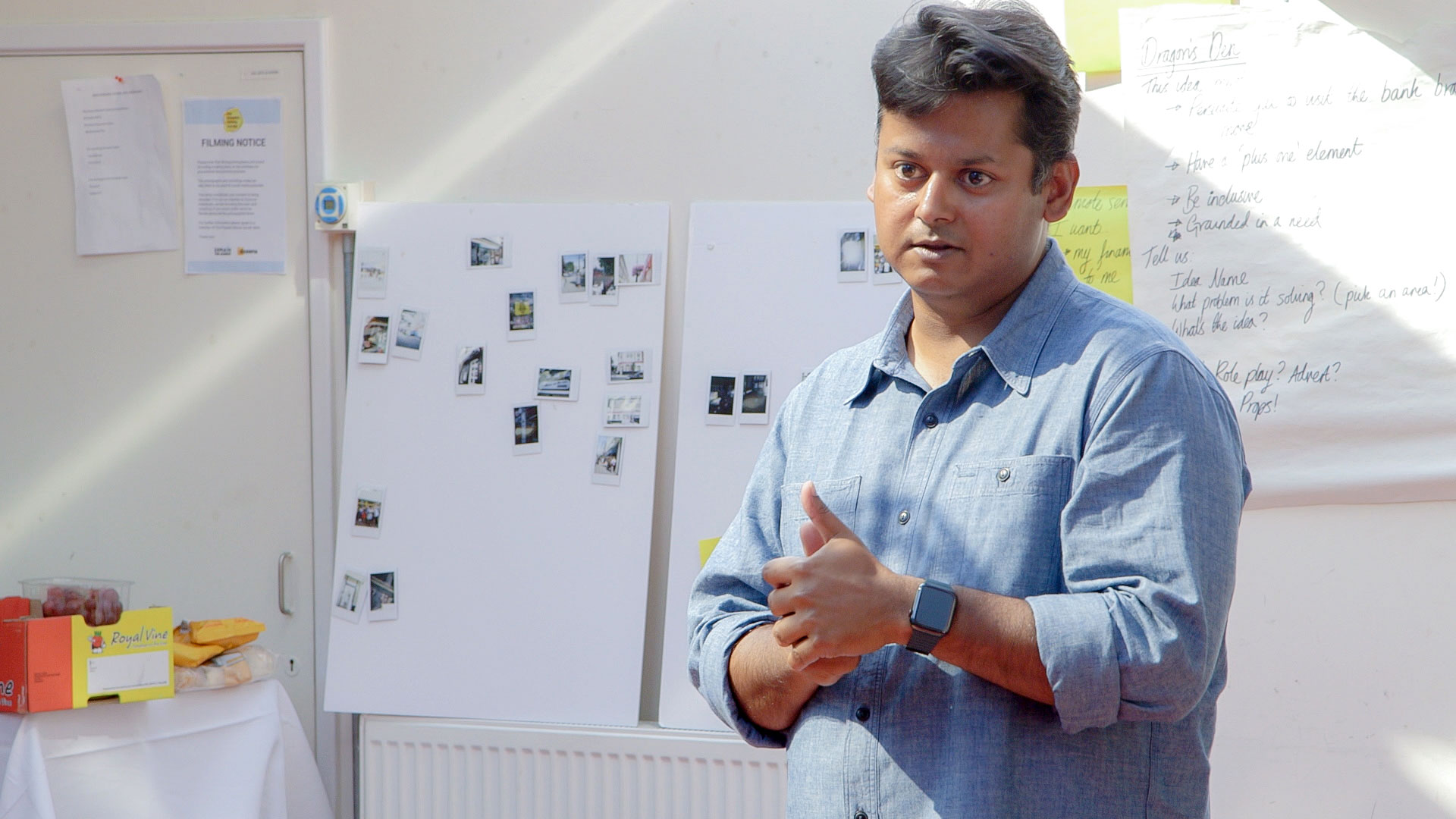Banking with Purpose: An Interview with Aritra Chakravarty
Interview with Aritra Chakravarty, Founder and CEO of Project Imagine, parent of Dozens and Pi1
Dozens created the hashtag #questionyourbank, a movement designed to encourage customers to engage with their financial institutions. The phrase was coined by founder Aritra Chakravarty, who bills himself as a “recovering banker”. Project Imagine, and its B2C service, Dozens, brings together “the best minds that dream of a simpler, more equitable financial future for all, with the funding, resources, creativity and team strength to co-create solutions with those who face such [financial] problems”. Soldo, the prepaid card provider, spoke to Aritra about his manifesto for banking that operates on a fundamentally fairer business model, rather than just offering a spruced up customer experience.
You’re not a bank, you’re trying to be something different, so do you think the era of the traditional bank is over?
The typical bank – big buildings, a lot of branches – is being challenged because it’s now possible for someone like me to get the regulation, the technology and the access to talent to take on the big brands.
But people still need an institution where depositors can make their money work for them, by lending it to people who need it, and not everyone wants to do that peer-to-peer. So we’ll always need the institution. Whether it’s a digital bank or not is less important: banking as a service is not going away anytime soon.
However, it’s the economics of banking that should be changing. Evolving the service layer by making banking more digital and accessible solves a set of very low hanging fruit problems, but it doesn’t actually change people’s relationship with money. Today’s challenger banks don’t go far enough in their challenging of the traditional banks.
The biggest issue is that banks as we know them profit most when people borrow. To use an example, when you let your flat on Airbnb, the platform gets to keep 20% and you get to keep 80% of the money that comes from your asset (in this case, your property). Something similar needs to happen in banking.
The biggest issue is that banks as we know them profit most when people borrow. When you give your flat to Airbnb, the platform gets to keep 20% and you get to keep 80% of the money that comes from your assets. Something similar needs to happen in banking.
We’ll come back to banks in a moment. You said that people will always need this kind of institution. Was that comment aimed at the Crypto community? Is decentralised finance a bogus trend?
My instinctive answer is yes, decentralisation is a last resort. When you absolutely don’t trust any institution. It’s a great idea; because at least you can trust everyone to keep everyone else honest, but in most economies around the world, there is still trust in institutions. There is trust in democracy, there is trust in elections and parliament and, we may joke about it, but for the most part, we take those processes seriously. In the UK, you know that your vote is being counted correctly, you can rely on those processes. It’s only a severe level of mistrust that makes decentralisation worth it. But in a stable society, most people just want to pick the best institutions to do the best job. Of course, it’s impossible to have a global view on this. Depending on the country you’re in, the answer could be very different.
But banking as a social institution will absolutely need to exist; and it’s that social contract between customers and the institution that I think is ready to be challenged, more than the service contract. Fintech has already challenged the service contract and proven that banks need to up their game. The battle now is the economic social contract.
Is that economic change possible?
I think the banks need to decide whether or not they are platforms. If all they do is connect surplus money with people who need money, then they should operate an 80/20 model, just like Airbnb and Uber. If they’re going to do something more value-added, like helping you become a better financial version of yourself and plan for the future, then they must align their incentives with their customers’ in their business model.
This is, after all, what the Wealth Management industry does. When a client gets richer, their wealth manager gets richer, too. So why does that model not apply when you need it most – when you’re just starting out saving money? Why, at that point, do institutions do better when you borrow? UK banks paid out around £6bn – £7bn in interest payments in 2018, and they charged £2.5bn in overdraft fees and charges in 2018. Banking today is effectively a reverse Robin Hood! Who can new savers rely on, if the wealth management economic model is only available to people who have already got there?
Banks must either engage with their customers differently or remain as platforms and run on a much lower cost, because other industries are now telling them what the fair rent for a platform is, and they’re coming up short in comparison.
One of the challenges, though, is that finance is relentlessly obscure. People are overwhelmed with choice. The price comparison sites were meant to give us knowledge but consumers, I sense, are still terribly blind.
I agree for the most part. And my rebuttal would be that a lot of fin-techs have got what they asked for. If they led with a campaign about a better looking app or a better looking card, then people have got the app and used the card for day-to-day spending. No fin-tech has actually made a case for shifting your money to them with better financial products or a better financial journey.
That’s what we’re trying to do. We hold a customer’s hand from being a spender who struggles to save, through to effective financial management. We give them the visuals to see where they actually spend and then to make a budget that will last to the end of the month. Then, when they save £100, they can get a listed 5% fixed interest bond, get habituated into that feel-good factor of staying in the black every month, and ultimately make their way to investments as a way to continue growing their money.
But that aggregation is incredibly hard to design and execute. It’s much easier to go out with a single-use card, grow some users, show viral growth and raise more money.
If today’s challenger banks grow bigger, they just become another HSBC – maybe with a slightly more cultish consumer following because of a good looking card and a good looking app.
So what is the direction of travel for fin-tech over the next few years? It’s going to take time to get people to change their habits and build engaging services…
There is room for many winners.
The landscape is one of purpose and profitability, like the two axes of a chart. If I’m too idealistic, I may not exist in a few months’ time; if I’m too profitable, then what’s the point?
We’ve seen around $100bn of investment into fin-tech since 2011 and, at the same time, banks have put over another $100bn into modernising their own technology responding to the fin-tech threat. And yet in the US, 40% of the population doesn’t have $400 saved up for emergencies, up from 25% in 2009. And in the UK, the savings rate is now below 0%, if you take pensions into account. If today’s challenger banks grow bigger, they just become another big bank (think HSBC or Lloyds) – maybe with a slightly more cultish consumer following because of a good looking card and a good looking app.
So the purpose is still missing. My professional upbringing was as a banker and we certainly make decisions as a financial services firm with technology as an enabler. It helps us compete on cost and experience. But it’s not the main driver for our decisions. The driver is what will make our customers better off five or ten years down the line.
Let me give you an example. We had a heated debate once about whether to show offers on our platform. Offers are great for someone who is, say, trying to save for a winter coat. Why not let them save 20% if they know that they want a coat and there’s an offer for it? On the other hand, that person may not need a coat but spend the money on one because they see the offer, hurting their finances. These debates are central to our existence. The offer isn’t being used to monetize user or transaction data, but it has an impact on someone’s life in the way that they respond to it. We have to decide on that basis whether it belongs on the platform or not. I don’t know how many other fin-techs are having these discussions, but we’re hoping that differentiating on purpose will lead to profitability too.
Changing the way people think about their relationship with banks will take time. In the short term, therefore, the B2B platform on which Dozens runs (Pi1) is being made available to banks and other fin-techs looking to build their own products from scratch. We offer a single API and a single contract, all as part of the package. It’s an exciting part of the business in 2020.
Does it change your roadmap for the next few years to be servicing other traditional banks?
Not at all. This was our plan from day one, so the Dozens stack has been configurable from the outset. Furthermore, for Open Banking, we needed to open up the APIs as a regulatory obligation. The UK regulators are well ahead of most other regulators across the world. They’re pioneers in encouraging fin-techs to take on the oligopoly of the banking industry. I think they worry about the right things: they keep us on our toes, but they are also hugely supportive – they are a key institution and, as I said at the outset, we need those institutions!
This interview is part of a series by Soldo, the prepaid company card solution that makes your expense accounting simple. You can read more interviews from Soldo’s interview series here.








